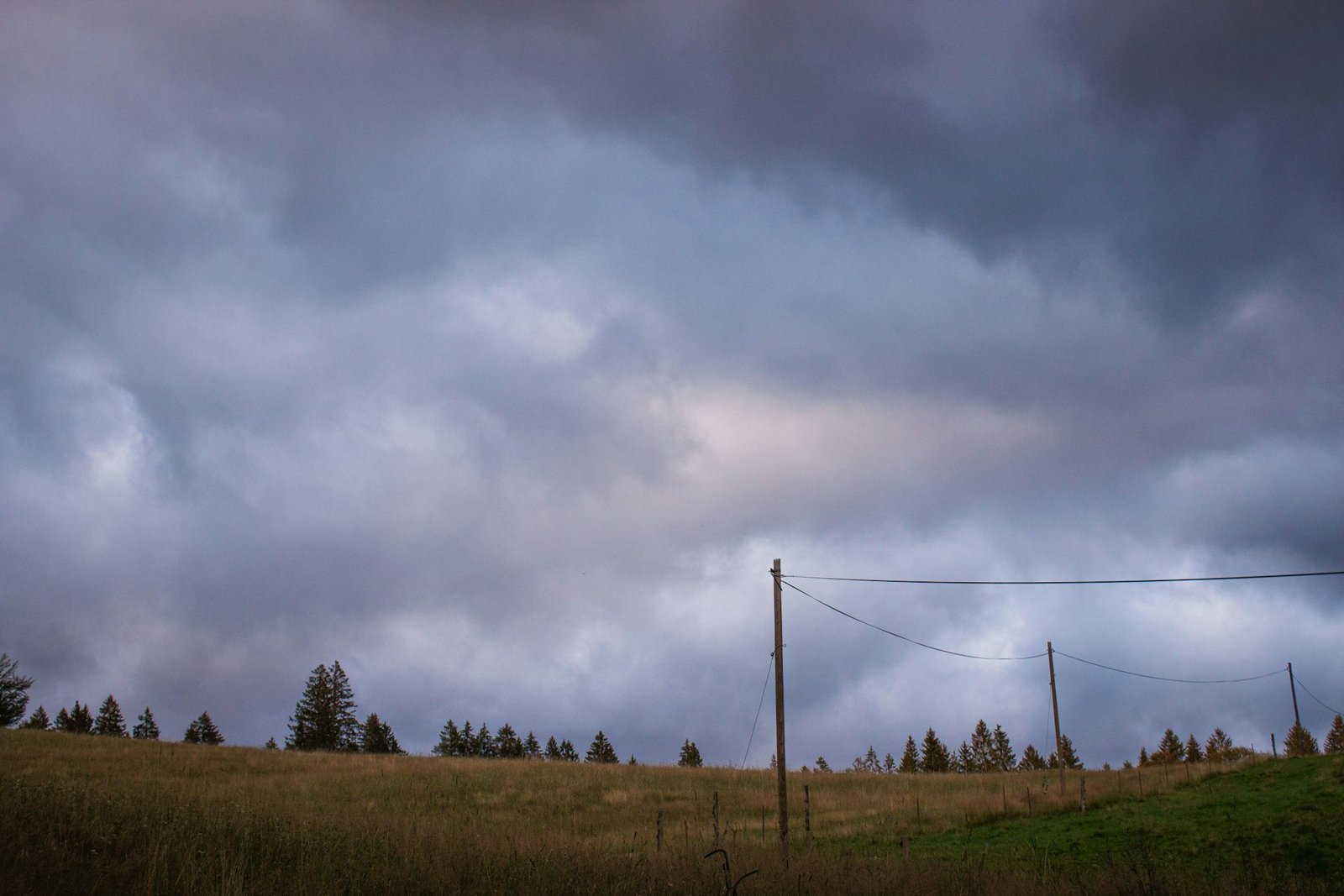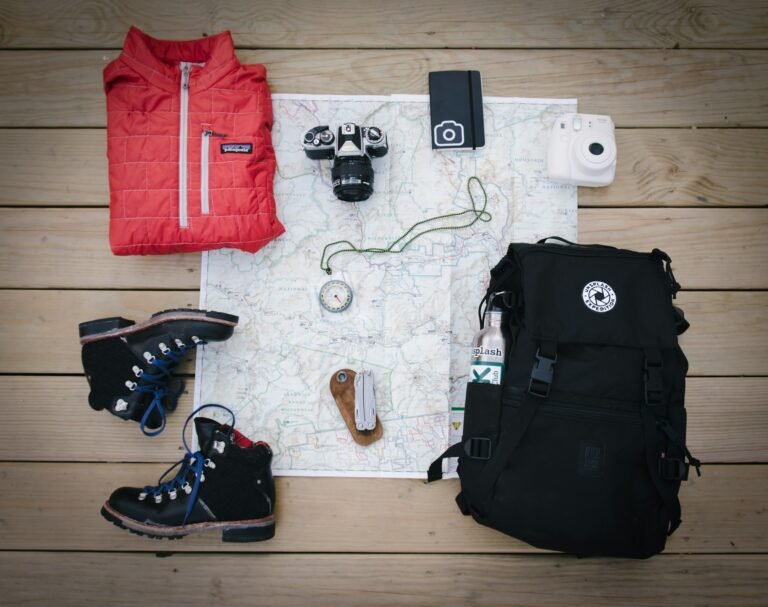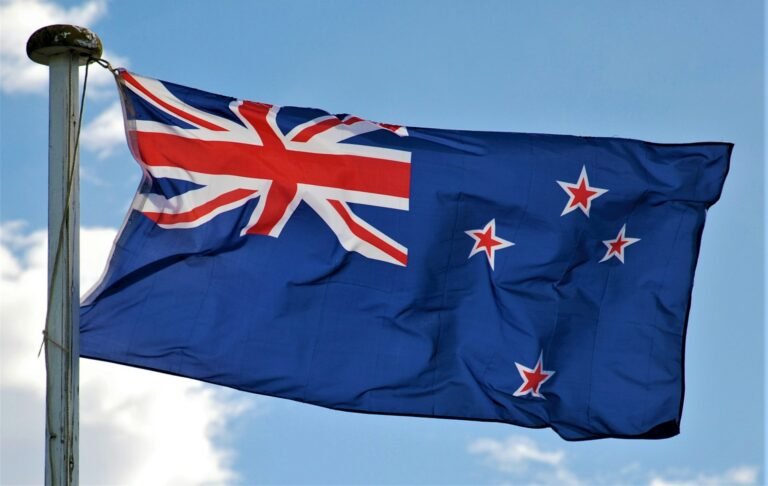Have you ever found yourself wandering through a normally packed tourist hotspot, only to realize you’re practically alone? That eerie yet delicious feeling of having a famous landmark all to yourself? I have—and let me tell you, it’s both weird and wonderful.
My first taste of off-season travel happened entirely by accident. Five years ago, I booked a dirt-cheap flight to Barcelona in November, blissfully unaware that I’d stepped into what industry insiders call the “shoulder season.” The crowds had vanished, the locals had reclaimed their city, and I accidentally stumbled into what would become my travel obsession: exploring famous destinations when nobody else wants to be there.
The Dirty Little Secrets of Off-Season Travel
Tourism has seasons for a reason. Sometimes it’s weather (nobody wants to see Venice underwater during acqua alta), sometimes it’s school calendars (families can’t exactly pull the kids out mid-semester for that dream trip to Disney), and sometimes it’s just tradition (who decided summer was the only time to visit Greece anyway?).
But here’s what the glossy travel brochures don’t tell you: traveling during the “wrong” time of year can be the most authentic experience you’ll ever have.
When the Crowds Go Home, the Magic Begins
Picture this: You’re standing in front of the Mona Lisa at the Louvre. Except instead of jostling with 200 other tourists wielding selfie sticks, there are maybe 15 people in the room. You can actually see the painting. You can breathe. You can contemplate art without contemplating murder.

Last February, I walked straight into the Vatican Museums—no line, no wait. In August? That same entrance has a queue that snakes around the block for hours. The guards were chatty, the ceilings were just as Michelangelo-ed as ever, and my experience was infinitely better than my summer-visiting friends’.
The Weather Might Suck (Or It Might Not)
Let’s be honest—sometimes off-season means bad weather. I once spent three days in Santorini during a freak November storm that turned the famous white-and-blue vistas into a grayscale watercolor. The ferries stopped running. The power went out. And yet? It was one of my favorite trips ever.
The taverna owner who’d normally be slammed with tourists sat down with us, broke out his private raki stash, and spent the evening telling us stories about island life that no summer tourist would ever hear. When the clouds finally parted on our last day, we had those iconic caldera views entirely to ourselves.
Of course, sometimes “bad” weather isn’t even that bad. European Christmas markets are magical precisely because they’re cold. The Caribbean’s “rainy season” usually means a dramatic afternoon shower followed by gorgeous sunshine. And Venice in November mist has a mysterious beauty that sun-drenched summer crowds will never appreciate.
The Genuine Economics of Off-Peak Travel
My bank account and I have extensively researched this topic, and we’ve reached a unanimous conclusion: traveling off-season is like getting a luxury upgrade without paying for it.
Your Money Goes Embarrassingly Further
Remember that Barcelona trip I mentioned? My four-star hotel room cost less than a hostel bed would in August. The same pattern holds everywhere:
- That darling little Parisian hotel with Eiffel Tower views? In January, it’s suddenly within reach.
- The Amalfi Coast villa that requires a celebrity budget in July? Come November, it’s practically begging for occupants.
- African safaris during green season? Half the price, twice the lushness, and yes, you’ll still see animals (who, contrary to popular belief, don’t disappear during low season).

The Hidden Costs of Peak Season
What they don’t tell you about peak season travel is that everything costs more—not just your accommodation. Restaurants introduce “tourist menus” (code for: same food, higher prices). Tours are booked solid weeks in advance. Even museum tickets often surge to peak-season rates.
During my January trip to Mexico City, I found myself in culinary heaven at restaurants that would have required reservations months in advance during high season. The bill came to about half what I’d budgeted. Same margaritas, same mind-blowing mole, dramatically different price tag.
The Emotional Reality Check
There’s something you need to know about off-season travel that nobody mentions: it can be emotionally complicated.
The Loneliness Factor
Walking through a half-empty Prague in March has its moments of melancholy. That perfect Instagram shot of busy cafe terraces lined with people-watching opportunities? Not happening. Some attractions close entirely. Some towns seem almost shuttered.
During my winter trip to Mykonos—yes, the same island that’s packed with partying bodies in summer—I found myself the only person in my hotel. The pool was covered, the famous beach clubs were locked up tight, and I had a moment of “what am I doing here?” panic.
But then I discovered something: the Mykonos that tourists rarely see. The one where locals recognize you after your second coffee stop. Where the owner of a tiny art gallery invites you in for ouzo and conversation because she has no other customers. Where you experience a place for what it actually is, not just for what it sells to summer visitors.
The Joy of Authentic Connections
Off-season brings the gift of time. Shopkeepers chat longer when their stores aren’t crammed. Tour guides give more personalized experiences when they’re not managing huge groups. Bartenders remember your name and your drink.
In Sicily during November, I received cooking tips from a restaurant owner who pulled up a chair at my table after the dinner rush (which consisted of exactly four other diners). He showed me phone pictures of his grandchildren and gave me his actual personal recipe for arancini. This doesn’t happen in July.
The Practical Survival Guide to Off-Season Travel
Alright, I’ve sold you on the concept. Now let’s talk about how not to have your dream off-season adventure turn into a disaster movie.
Research Like Your Trip Depends On It (Because It Does)
Off-season travel requires homework. That adorable seaside town might completely shut down from October to April. That mountain pass you’re counting on might be snow-covered. That famous festival might be the only week worth visiting a particular location.
Before booking, check:
- Which attractions adjust their hours or close completely
- Local holidays that might affect openings
- Transportation schedules (many places reduce ferry/bus/train service)
- Recent weather patterns (not just averages)
During a February trip to rural Japan, I discovered that while Tokyo was business as usual, the small mountain town I’d planned to visit operated on a drastically reduced winter schedule. The main shrine was open, but the hiking trails were closed, and the bus I’d counted on ran only twice a day instead of hourly.
Pack for Parallel Universes
Off-season weather can be wildly unpredictable. I’ve needed both sunscreen and a heavy coat on the same day in Istanbul during March. My April trip to Scotland included snow, sunshine, rain, and what locals called “a wee bit of summer” all within 48 hours.
My packing strategy now revolves around layers, versatility, and the acceptance that I’ll probably get something wrong. That’s what local shopping is for, right?
The Reservation Dilemma
Here’s a paradox of off-season travel: while most things don’t require reservations, the few things that do become even more essential to book ahead.
That one restaurant that stays open year-round? It’s where all the locals and in-the-know travelers go. The single tour that runs daily instead of hourly? It sells out faster than you’d think.
I learned this lesson the hard way in Venice, assuming I could stroll into any restaurant during November. Turns out, with many tourist spots closed, the good local places were packed with Venetians who could finally reclaim their city.
When Off-Season Is Actually Better Season
Some destinations aren’t just cheaper in the off-season—they’re legitimately better experiences.
Cities That Breathe
Major European cities like Paris, Rome, and Barcelona transform during low season. The locals reclaim their favorite spots. The cultural calendar often peaks when tourists are gone—the best opera performances, art exhibitions, and theater runs happen when residents are the primary audience.
Walking through the Marais in Paris during February meant I could actually see the architecture without dodging tour groups. I could hear street musicians without straining. I could sit at iconic cafes without feeling rushed.
The Undiscovered Food Seasons
Every destination has peak culinary seasons that often don’t align with peak tourist seasons. White truffle season in Italy? Late fall. Oyster season in France? Contains an ‘R’ month (September through April). Game meats in Scotland? Winter.
Some of the most memorable meals happen when ingredients are at their prime and chefs are cooking for discerning locals, not rushed tourists.
The Photography Dream
Bad weather makes good photos. That dramatic sky over the Scottish highlands? Those moody mists around Japanese temples? The reflective puddles in Parisian streets? All off-season phenomena that create images with depth and character.
During cherry blossom season in Japan, you’ll be photographing… the backs of other people’s heads as they photograph the blossoms. In November, that same temple garden might give you golden leaves against red pagodas—with nobody else in frame.
The Ethics of Off-Season Travel
There’s a complex ethical dimension to off-season travel worth considering.
Supporting Year-Round Economies
Many tourist destinations struggle with seasonal employment. When you visit during quieter months, your money helps sustain communities that might otherwise face months of economic hardship.
That family-run hotel in Crete maintains staff year-round because winter visitors, even at reduced rates, keep the lights on. The small tour company in Costa Rica can provide steady jobs because travelers still come during the green season.
Environmental Impact
Peak season overtourism damages environments. Venice’s canals, Thailand’s beaches, and Iceland’s fragile ecosystems all benefit from reduced traffic months. Your off-season visit has a lighter footprint.
During my October trip to Machu Picchu, the reduced crowds meant less erosion on the ancient paths, less strain on local water resources, and a more sustainable experience overall.
When You Should Absolutely Ignore My Advice
Let’s be honest—some experiences just aren’t worth the off-season savings:
- If seeing the northern lights is your dream, summer in Iceland is the wrong move, no matter how cheap.
- If you’re going to the Caribbean specifically for guaranteed perfect beach days, hurricane season isn’t worth the risk.
- If a specific festival or event is your entire reason for visiting, plan around it.
My worst off-season mistake was booking a beach vacation in Thailand during monsoon season. The deal was incredible. The week of solid rain was not. Some things are popular at certain times for very good reasons.
Final Thoughts: The Off-Season Mindset
The true secret to successful off-season travel isn’t just about saving money—it’s about adjusting expectations and embracing the unexpected.
That closed museum might lead you to a local art gallery you’d never have discovered otherwise. That rainy day might create the perfect atmosphere for the cozy cafe where you have a three-hour conversation with a fascinating local. That “ruined” beach day might turn into an impromptu cooking class with your guesthouse host.
Off-season travel taught me that the best experiences often happen when my original plans fall apart. It’s a metaphor for life, really—sometimes the detours are the destination.
So the next time you’re planning a trip, consider zigging when the crowds zag. Book that February flight to typically summery spots. Roll the dice on April in the mountains. You might find yourself with a lighter wallet, a deeper experience, and stories that no summer tourist will ever get to tell.
Just maybe check if the ferries are running first.
FAQs About Off-Season Travel
What exactly is considered “off-season” for travel? Off-season typically refers to the period when a destination sees its lowest tourist numbers, often due to less favorable weather conditions or being outside school holiday periods. It varies by destination—summer can be off-season in tropical areas, while winter is off-season for many European beach destinations.
How much money can I actually save by traveling off-season? Savings vary widely but expect anywhere from 30-60% off peak-season rates for accommodations. Flights can be 20-40% cheaper, and many attractions offer reduced off-season pricing. In luxury destinations, savings can be even more dramatic.
Will everything be closed if I travel off-season? Not everything, but this requires research. Major attractions in international destinations usually remain open year-round, albeit with reduced hours. Smaller, seasonal businesses like beach restaurants or certain tours might close entirely during deep off-season.
Is off-season travel safe weather-wise? This depends entirely on the destination. While some places have mildly inconvenient off-season weather (like occasional rain), others face extreme conditions like hurricanes or blizzards. Research typical off-season weather patterns for your specific destination.
When is shoulder season, and is it better than off-season? Shoulder season falls between peak and off-peak periods (like May or September in Europe). It often offers a good compromise—better weather than off-season but fewer crowds and lower prices than peak season.
How do I find out when the off-season is for specific destinations? Tourism board websites typically list high and low seasons. You can also check hotel pricing calendars—when prices drop dramatically, you’ve found the off-season.
Are there destinations that don’t have an off-season? Yes! Places with year-round consistent climate (like Hawaii) or major business destinations (like New York or London) tend to have fluctuations in tourism but no true “off” season.
What’s the best packing strategy for off-season travel? Layers, versatility, and preparation for extremes. Always pack for the weather you might encounter, not just what’s predicted. A packable rain jacket is essential almost anywhere.
How far in advance should I book for off-season travel? While you won’t face peak-season sellouts, booking 1-2 months ahead is still wise for accommodations. Off-season often means reduced flight schedules, so the remaining flights can fill up.
Is travel insurance more important for off-season trips? Absolutely. Off-season weather increases the risk of delays, cancellations, and disruptions. Good travel insurance that covers weather-related issues is essential.
Are there health concerns specific to off-season travel? Some destinations have rainy seasons that coincide with increased mosquito activity and related diseases. Others have extreme temperature conditions that require preparation. Always check health advisories for your destination during your specific travel period.
How do I handle the potential for loneliness during off-season travel? Stay at smaller, locally owned accommodations where interaction is more likely. Seek out community events, classes, or group activities that cater to locals. Consider booking a few group tours to connect with other travelers.
Top Off-Season Travel Recommendations
Budget-Friendly Accommodations
- Riad Dar Justo – https://www.darjusto.com/ Stunning traditional riad in Marrakech with courtyard pools that’s often booked solid in spring but offers remarkable winter deals.
- Pensione Guerrato – https://www.pensioneguerrato.it/ Charming Venice guesthouse near the Rialto Market with dramatic low-season discounts during November-February.
- Hix Island House – https://www.hixislandhouse.com/ Eco-luxury concrete lofts on Vieques Island with huge low-season discounts during hurricane season (though research weather patterns carefully).
Off-Season Experiences
- Context Travel – https://www.contexttravel.com/ Offers scholar-led small group tours year-round that become nearly private experiences during off-season months.
- Devour Tours – https://devourparistours.com/ Food tours run year-round across European cities with more intimate experiences during quieter months.
- Green Season Safaris – https://www.africansafaricompany.com/ Specialized wildlife tours during Africa’s lush green (off) season when baby animals are abundant and prices drop dramatically.
Destination Recommendations
- Kyoto in Winter – https://www.japan-guide.com/e/e3950.html Experience Japan’s cultural capital dusted with occasional snow without summer’s crushing crowds.
- Greek Islands in October – https://www.visitgreece.gr/ Still-warm sea temperatures, open tavernas, and dramatically reduced prices after the summer crowds depart.
- Mexico City in January – https://www.visitmexico.com/ Comfortable temperatures, clear skies, and post-holiday calm make this a perfect time to explore Mexico’s vibrant capital.
- Amalfi Coast in November – https://www.amalficoast.com/ The famous coastline without the infamous traffic jams, though some restaurants close for the season.
Essential Tools
- Google Flights Price Calendar – https://www.google.com/flights Quickly identify the lowest-fare periods to any destination, which typically align with off-season dates.
- Weather Spark – https://weatherspark.com/ Comprehensive historical weather data to understand exactly what conditions to expect during off-season periods.
- Rome2Rio – https://www.rome2rio.com/ Essential for checking transportation options during off-season when schedules may be reduced.
- Travel Insurance Comparison – https://www.insuremytrip.com/ Compare policies that specifically cover off-season weather disruptions and cancellations.
- The Culture Trip – https://theculturetrip.com/ Resource for finding local events and activities during off-season when typical tourist attractions might be closed.





